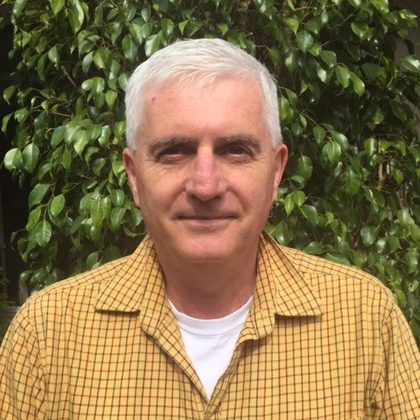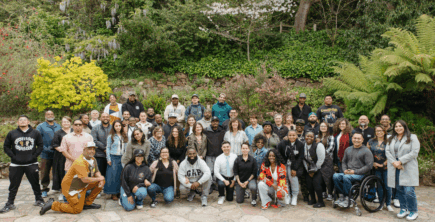
LGBT

Homelessness just may be the most gut-wrenching symbol of the inequality that dominates and distorts daily life in the world’s richest nations. In the United States, homelessness is challenging communities from coast to coast. In Los Angeles, the homeless ranks have jumped 47 percent since 2012. In New York City, one of every ten students had no permanent housing at some point last year.
Software developers can’t put roofs over people’s heads. But they can, as Silicon Valley’s Community Technology Alliance puts it, help housing activists and their organizations more effectively get the right resources to the right people at the right time.
Software developers can’t put roofs over people’s heads. But they can, as Silicon Valley’s Community Technology Alliance puts it, help housing activists and their organizations more effectively get the right resources to the right people at the right time.
Bob Russell heads that Community Technology Alliance, and his work coordinating the development of the open-source HOME — for Homeless Outreach Mobile Engagement — software has won the 13th annual Antonio Pizzigati Prize for Software in the Public Interest. The $10,000 Pizzigati Prize honors software developers working to fashion open-source applications that support activists and nonprofits in their ongoing struggle for social change and renewal.
Tides, a partner to philanthropists and activists worldwide, hosts the prize selection process and formally presented this year’s honor in Portland, Oregon, at NTEN’s annual Nonprofit Technology Conference, the nonprofit sector’s signature technology event.
The HOME software, originally unveiled in 2017, is helping keep homelessness ‘rare, brief, and nonrecurring’ by breaking down the data silos that proprietary systems can make inevitable.
The HOME software, originally unveiled in 2017, is helping keep homelessness “rare, brief, and nonrecurring” by breaking down the data silos that proprietary systems can make inevitable.
The reasons people go homeless, explains Pizzigati Prize-winner Russell, can be as varied as a job loss or a medical emergency, a substance-abuse problem or domestic violence. No one organization can address these problems on its own, and the HOME software helps integrate data from multiple organizational sources. That integrating can, in turn, connect households more quickly, as Russell points out, “with housing and services that address their individual needs.”
Russell himself has come relatively late in life to software development. After a career spent mostly in nonprofit human resources work, he had a mid-life crisis of sorts soon after his 50th birthday.
“I wanted to do something,” he notes, “that would involve helping to make a tangible difference in people’s lives.”
The inspiration for the HOME software came after Russell realized that “data could be transformative” for homeless households. What if groups and agencies, he wondered, could tap data on these households to access their needs, match the households to available housing and services, and then refer them to organizations that could help them secure their needed resources? Russell’s own personal history helps him understand that the activists and groups the HOME software aims to help can find computer jargon overwhelming.
“No matter how impassioned I am about explaining APIs, ETL, and Javascript frameworks, these terms are simply hard for most people to grasp,” he acknowledges. “We start by talking about the pain points or issues that people working for social change are trying to resolve. Once we’ve identified the pain points, we visualize and discuss how HOME addresses those issues.”
This year’s Pizzigati Prize judging panel included Joseph Mouzon and Amy Sample Ward, national leaders in public interest computing, as well as Bay Area developer and investor Ben Wen .
“Our judges had a particularly difficult task this year,” notes Sonya Watson, the Antonio Pizzigati Prize coordinator for Tides. “We had an outstanding group of finalists.”
Those finalists for the 2019 Pizzigati Prize included:
The Antonio Pizzigati Prize for Software in the Public Interest goes annually to an open source software developer who’s adding significant value to nonprofits and social change movements. The prize honors the brief life of Tony Pizzigati, an early advocate of open source computing. Born in 1971, Tony spent his college years at MIT, where he worked at the world-famous MIT Media Lab. Tony died in 1995, in an auto accident on his way to work in Silicon Valley.
To learn more about Tony, the prize, and its judging criteria, visit www.pizzigatiprize.org.

LGBT

Corporate Partners

Philanthropy

Read the stories and hear the voices of social change leaders fighting for justice.